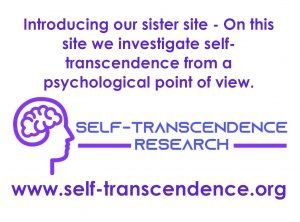 There are some foods in our world that are powerful healers, with benefits we are only beginning to understand. Honey is one of those foods. Created through the toiling of one of our most precious resources—bees—this sweet liquid has the potential to be far more than an addition to your tea or toast; it may actually be a medical treatment even for cancer.
There are some foods in our world that are powerful healers, with benefits we are only beginning to understand. Honey is one of those foods. Created through the toiling of one of our most precious resources—bees—this sweet liquid has the potential to be far more than an addition to your tea or toast; it may actually be a medical treatment even for cancer.
The health benefits of honey are remarkable, as the substance holds antibacterial, antiviral, antifungal, and antibiotic properties. A recent review published in the journal Molecules tried to identify just how honey worked to ameliorate various types of cancer. As Sayer Ji at GreenMedInfo reports, the research indicated flavonoids and phenolic acids as the primary compounds in honey’s anti-cancer properties.
Many of these flavonoids are phytoestrogens, meaning they bind easily to estrogen receptors, potentially increasing the positive influence they have on estrogen receptor-positive cancers. Further, some (but not all) honeys are able to target cancer cells selectively in “selective cytotoxicity”, where the cancer cells are killed, but nearby healthy cells are left alone.
Honey’s anti-cancer properties have been under the microscope for years. Studies have linked it to positive results in various forms of cancer including liver, colorectal, prostate, bladder, endometrial, skin, cervical, lung, mouth, bone, and renal cell carcinoma.
The Molecules review states:
“Honey is a natural product that shows potential effects to inhibit or suppress the development and progression of tumor and cancer. Its antiproliferative, antitumor, antimetastic and anticancer effects are mediated via diverse mechanisms, including cell cycle arrest, activation of mitochondrial pathway, induction of mitochondrial outer membrane permeabilization, induction of apoptosis, modulation of oxidative stress, amelioration of inflammation, modulation of insulin signaling, and inhibition of angiogenesis in cancer cells.
Honey is highly and selectively cytotoxic against tumor or cancer cells while it is non-cytotoxic to normal cells. It can inhibit cancerogenesis by modulating or interfering with the molecular processes or events of initiation, promotion, and progression stages. It, therefore, can be considered a potential and promising anticancer agent which warrants further research—both in experimental and clinical studies.”
We are only beginning to understand the many potential anti-cancer benefits of honey. But as we learn more, it’s becoming apparent that this natural food-healer could very well be more effective and no-doubt less harmful than conventional treatments like chemotherapy.
As a matter of fact, one recent study comparing the effects of tualang honey and one chemo drug on breast cancer found it to be comparable to the effects of tamoxifen (a conventional chemo drug), but without the side effects.
“To our knowledge, this is the first study that provides evidence of modulation of TAM activity by honey and that the combination of TH and TAM is more potent than either agent alone in inhibiting cell growth of both ER-positive and ER-negative breast cancer cells via direct induction of caspase-dependent apoptosis.”





